
Fitness coach Dan Go believes the secret to looking and feeling younger lies in what you eat daily. He claims that the right foods can support your cells, protect against damage, and naturally slow down ageing. Collagen boosters like eggs and bone broth keep skin firm, while antioxidant-rich fruits fight wrinkles. Green tea, olive oil, and beans nourish cells, and omega-3s from salmon and walnuts reduce inflammation. Gut-friendly foods such as garlic and kimchi improve digestion and immunity, while proper hydration restores skin glow and energy. By combining these foods in balanced meals and staying consistent, Dan shows that simple dietary choices can make you feel stronger, healthier, and up to ten years younger naturally.
Fitness coach Dan Go anti-ageing menu that makes him look younger
Collagen boosters: Eggs, grapefruit, pumpkin seeds and bone broth
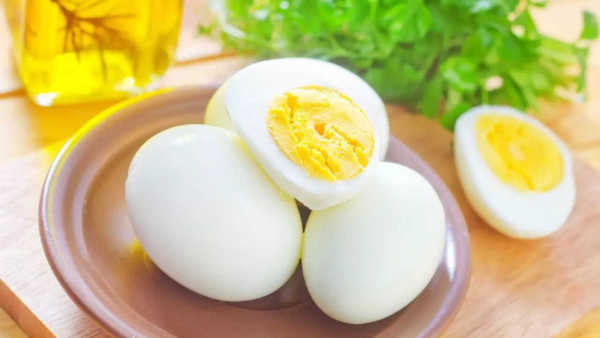
Collagen is the structural protein that gives skin its spring and joints their resilience. After about age 30 our natural collagen production slows, so foods that either provide collagen precursors or stimulate its production help maintain skin firmness and joint comfort. Eggs are an efficient source of amino acids like proline and glycine, which are raw materials for collagen. Grapefruit (and other vitamin C–rich fruits) supplies the cofactor that the body needs to assemble collagen from those amino acids. Pumpkin seeds add zinc and other minerals required for tissue repair. Bone broth provides gelatin (denatured collagen) and peptides that some people find helpful for joint comfort and gut lining support.
How to use them: have eggs as a protein-forward breakfast, pair citrus with collagen-rich soups or smoothies, and sprinkle pumpkin seeds on salads and yoghurt. If you use bone broth, simmer it into stews or sip a cup as a midday pick-me-up. Watch sodium on commercial broths and consider whole-food vitamin C sources rather than relying only on juice.
Antioxidant powerhouses: Swiss chard, pomegranate, blueberries and grapes
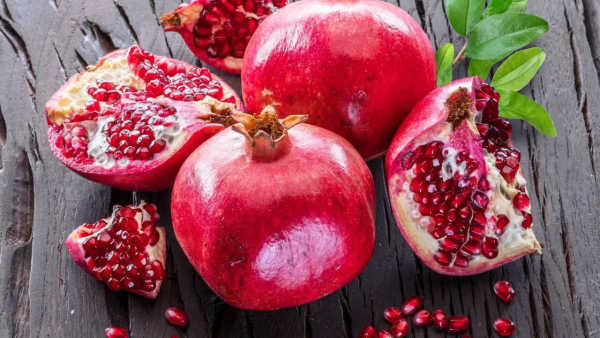
Free radicals — unstable molecules produced during normal metabolism or triggered by pollution and UV exposure — damage cell membranes, proteins and DNA. Antioxidants neutralize these radicals and reduce inflammation that accelerates visible ageing. Leafy greens like Swiss chard bring a spectrum of micronutrients and carotenoids that protect skin and blood vessels. Pomegranate and blueberries are rich in polyphenols and anthocyanins, powerful plant pigments that support vascular health and may protect brain function. Grapes (especially dark ones) contain resveratrol-type compounds linked to cellular longevity pathways.
How to use them: make a colorful plate your default. Add a handful of berries to breakfast, toss Swiss chard into a warm salad or stir-fry, and snack on pomegranate arils. Fruit contains natural sugars, so balance portions with protein or fat to slow glucose spikes.
https://www.instagram.com/p/DODyFSAkfEf/ https://www.instagram.com/p/DODyFSAkfEf/
Cellular nourishers: Green tea, olive oil and beans
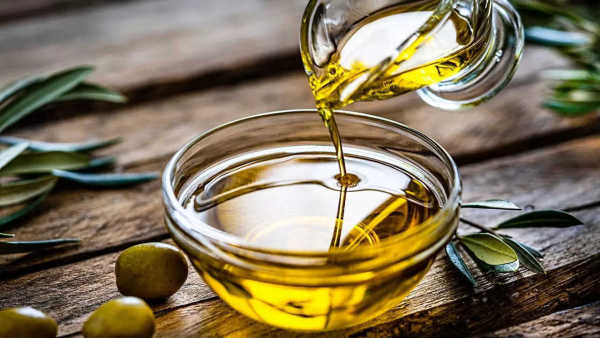
Cells maintain health through efficient energy production, clean-up systems (autophagy and repair enzymes), and steady membranes. Green tea contributes catechins — plant compounds that support cellular repair pathways and gentle metabolic boosts. Extra virgin olive oil supplies monounsaturated fats and polyphenols that protect cell membranes from oxidation and support healthy cholesterol profiles. Beans are a slow-burning protein and fiber source that stabilize blood sugar and provide micronutrients like magnesium and folate, which are essential for DNA repair and energy metabolism.
How to use them: replace some cooking fats with good-quality olive oil used at low to medium heat or as a finishing oil. Replace a refined carb at one meal a day with a bean-based dish. Sip green tea between meals rather than as a sugary beverage.
Omega-3 rich foods: Salmon, sardines, chia seeds and walnuts
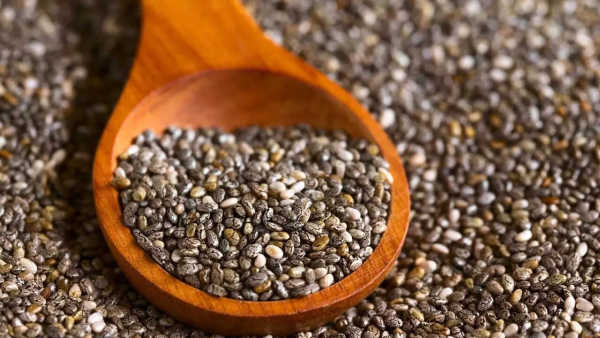
Omega-3 fatty acids (EPA, DHA and plant-based ALA) are anti-inflammatory building blocks for cell membranes, especially in the brain and skin. They help maintain skin barrier function, reduce inflammatory signaling that contributes to fine lines, and support cardiovascular and cognitive health. Fatty fish like salmon and sardines provide readily usable EPA and DHA, while chia and walnuts offer ALA that the body partially converts. Because chronic, low-grade inflammation is a major driver of age-related decline, including omega-3 sources helps modulate that process.
How to use them: aim to include fatty fish a couple of times per week if possible. Add chia or ground walnuts to smoothies or porridge for a plant-based omega boost. Be mindful of sustainably sourced fish and, where relevant, mercury advisories for large predatory fish — sardines and smaller salmon are generally lower in contaminants.
Gut-healing foods: Sauerkraut, garlic, asparagus and kimchi
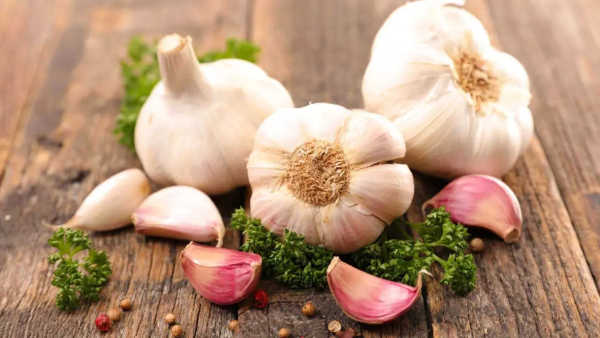
The gut microbiome acts like an on-site ecosystem manager: it helps digest food, produces short-chain fatty acids that nourish colon cells, and educates the immune system. Fermented foods such as sauerkraut and kimchi bring live bacteria (probiotics) into the intestine, while foods like asparagus and garlic supply prebiotic fibers that feed beneficial microbes. A balanced microbiome supports nutrient absorption, steadier mood (via the gut-brain axis), clearer skin and stronger immunity, all of which contribute to a youthful appearance and feeling.
How to use them: introduce fermented foods in small amounts to avoid digestive discomfort, and combine them with prebiotic vegetables across meals. If you have a history of sensitive digestion or histamine intolerance, progress slowly and consult a clinician if symptoms worsen.
Hydration: Why water (plus electrolytes) matters for youthful skin and energy

Hydration determines skin turgor, joint lubrication and how efficiently cells flush waste. Even mild dehydration makes skin look dull, increases fatigue and impairs concentration. Electrolytes — sodium, potassium, magnesium — help water move into and out of cells correctly; after heavy exercise or long days in heat, plain water plus an electrolyte source restores balance better than water alone. Adequate hydration also supports digestion, blood flow, and toxin clearance, producing a more radiant complexion and steadier energy.
How to use it: sip water consistently throughout the day rather than gulping large volumes intermittently. Monitor urine color as a simple practical guide: pale straw is a good target. For long workouts, hot climates, or heavy sweating, consider a drink with added electrolytes or include a salty snack with potassium-rich fruit.
How to combine these foods for day-to-day results
The real power comes from combining these foods intelligently at meals so nutrients support absorption and function. Pair collagen-rich proteins with vitamin C sources in the same meal to improve collagen synthesis. Combine plant and animal omega-3s with antioxidant-rich vegetables to reduce oxidative stress. Match fermented foods with fiber-rich vegetables to feed beneficial bacteria. Aim for variety across the week so you’re not missing key micronutrients that work together: vitamins, minerals, essential fats and ample protein.
Practical meal examples: a breakfast of eggs with sautéed Swiss chard and a handful of blueberries, a lunch salad with canned sardines, pumpkin seeds and pomegranate arils, and a dinner of bean stew enriched with olive oil and a cup of bone broth. Snack on walnuts or a small serving of kimchi-topped avocado toast for a probiotic + healthy-fat pairing.
Importance of consistency and caution in anti-ageing diets
No single food is a miracle cure. Real, sustained changes in skin quality, energy and joint comfort take consistent dietary habits plus sleep, movement and stress management. Some foods need caution: garlic and large quantities of fish oil can interact with blood thinners, fermented foods can aggravate histamine-sensitive people, and concentrated supplements can cause side effects if misused. If you’re pregnant, nursing, managing chronic illness, or taking medication, check with a qualified healthcare professional before making major diet changes or adding high-dose supplements.
Also Read | Hara Hachi Bu: Japanese technique shows how stopping at 80% full can help you eat mindfully and stay lean, reveals fitness coach
-
Jugnuma (The Fable) Review: Manoj Bajpayee, Deepak Dobriyal, Tillotama Shome In A Tale That Portrays The Power Of Simple Storytelling

-
Asia Cup 2025: Litton Das shines as Bangladesh beat Hong Kong by seven wickets

-
Narayana Murthy’s Infosys BIG move, announces Rs 180000000000 share buyback, matches TCS biggest ever…

-
Dubai's strict drug laws explained as Mia O'Brien suffers 'living hell' in UAE 'Alcatraz'

-
Dubai's strict drug laws explained as Mia O'Brien suffers 'living hell' in UAE 'Alcatraz'
